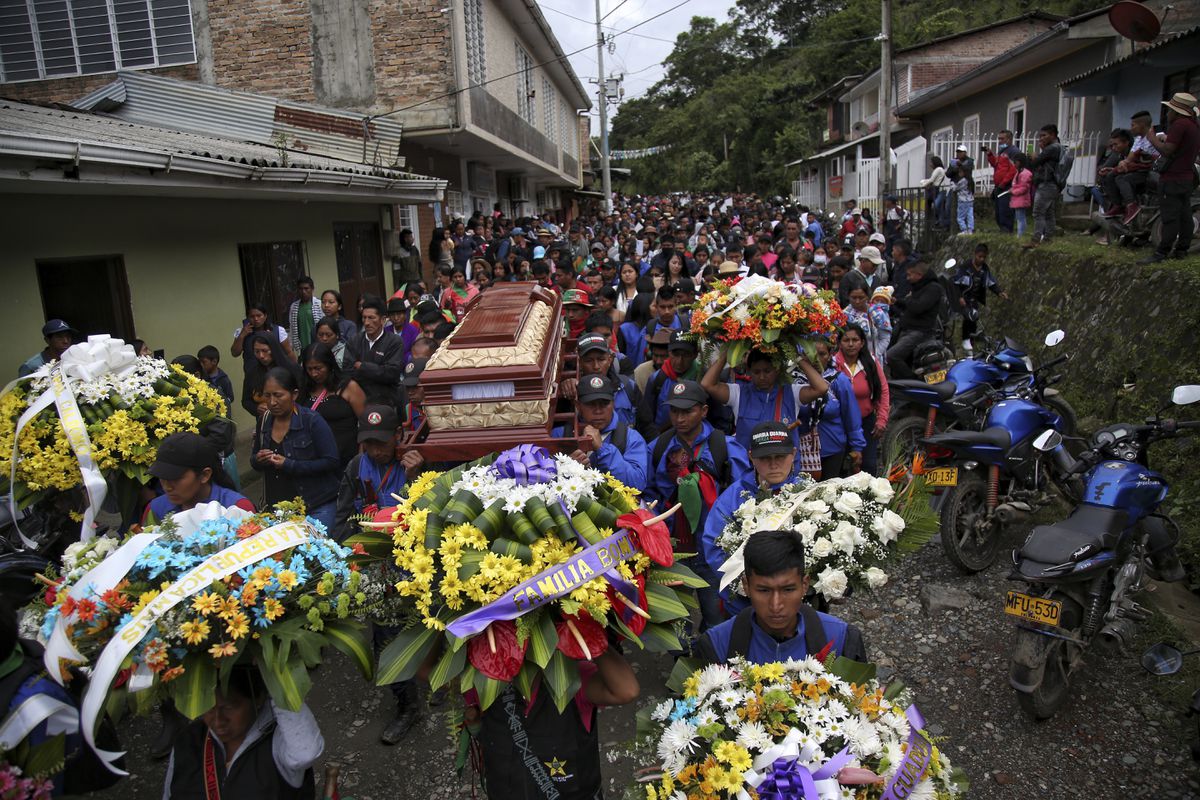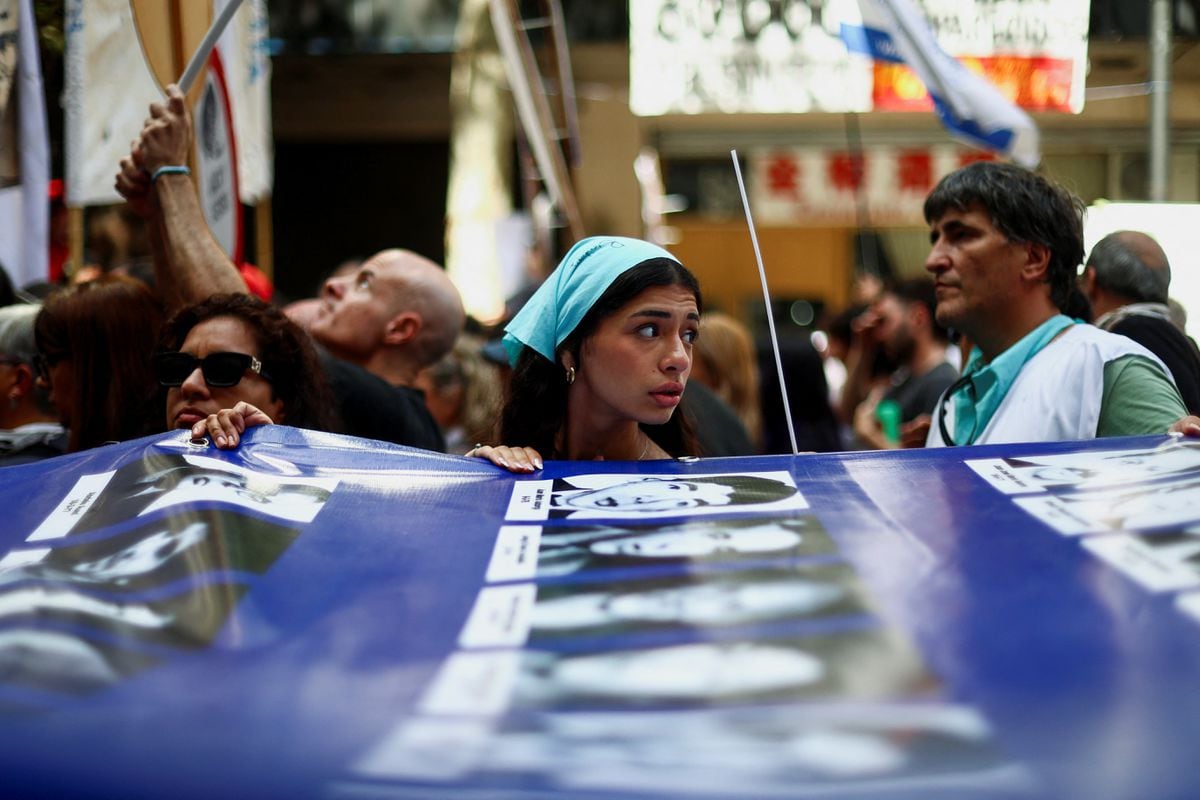The fight against impunity for scoundrels has occupied a large part of the life of Jan-Michael Simon (Aachen, 56 years old). After participating in the commissions against corruption and impunity in Honduras and Guatemala, this jurist and senior researcher at the Max Planck Institute, who speaks perfect Spanish, now chairs the UN Group of Human Rights Experts on Nicaragua (Ghren), whose mandate has been renewed for two years. He has just visited Madrid, where he has met with members of the Spanish government, following the devastating report that the Ghren published in March in which he accused Nicaraguan President Daniel Ortega, his wife and vice president, Rosario Murillo, and other senior state officials of crimes against humanity - extrajudicial executions, torture, deprivation of nationality - since 2018. Simon cannot pronounce under his position – "we are independent, we are not even UN officials" – on certain aspects of the case or on the region, but insists that there are ways to proceed against a regime that uses tactics such as those that led to the Nuremberg trials.
Question. What are the main recommendations of the report?
Answer. The first is that legal action be taken against those allegedly responsible for the crimes. The second is that sanctions be extended to these people and that they be individual, not sectoral. And finally, that international development cooperation and investment projects (including international loans) include guarantees of respect for human rights. The latter is the one that has attracted the most attention. In the case of the IMF, its Executive Board issued an opinion on January 27 in which it found that Managua had taken steps to improve governance and anti-corruption frameworks and, in particular, welcomed improvements in money laundering control and fiscal transparency. Our report says that the legal framework of money laundering and the instrumentalization of justice have been used by the regime for the political persecution of civil organizations and individuals, so we conclude that they have been part of a generalized and systematic attack against the population and count as crimes against humanity of political persecution. There are 50 countries that have pushed for the renewal of our mandate and represent more than 50 percent of the direct voting power on the IMF's Executive Board. How is it possible that, on the one hand, they approve this favourable opinion and, on the other, a report such as ours which argues the opposite? It is a clear, obvious contradiction.
Q. There is a double standard...
A. An important European diplomat explained to me that this contradiction is also transferred to relations between the Ministries of Foreign Affairs and Finance because, in his case, he spoke with Finance to take into account the human rights situation in Nicaragua and they replied that they were not interested in that. They were only interested in macroeconomic performance. I can say that the largest net revenue over GDP in Central America is held by Nicaragua by far. It is 27%, according to the OECD report of May. However, all rights and human development indicators place it in one of the worst positions in Latin America, along with El Salvador, Guatemala and Honduras. Where does the money go? And here we come to corruption. Corruption has a dimension in the field of human rights that manifests itself not only in defending the political status quo in order to steal more. If there is a country in which the mismatch between tax collection and human rights is evident, it is Nicaragua. We have a mandate to go to the roots of the conflict and these are not only in the simple dismantling of the system of separation of powers, but there is a business plan behind it. Behind a human rights violation of such magnitude, there is a business plan. Always.
Q. There are those who refuse to call the Ortega regime a dictatorship...
A. It is.
Q. Do you trust the international community to do something?
A. There are several ways. It is forgotten that Nicaragua has not ratified the Rome Statute, but it has ratified the UN Convention against Torture and we have detected in our report torture at various levels. Any signatory country of the treaty can, according to Article 30, sue Nicaragua for international responsibility before the International Court of Justice and that politically has a very important message. There are precedents. Who could take that initiative? The U.S. did not because it introduced a reservation to the court's jurisdiction over the Convention against Torture, but Spain could, for example. The political risk is that it would give Ortega a good argument to present himself as a victim of the countries of the North. That is why it would be important for it to be some Latin American country. The same applies to similar initiatives under the 1961 Convention on the Reduction of Statelessness. Another possibility is extraterritorial criminal jurisdiction, not universal, because there are victims who have dual nationality and that simple fact would give jurisdiction over the case, for example to Spain, France, Brazil, the United States or Germany. Our report has probative value for any country that opens an investigation and even in some countries the probative value is sufficient to issue an arrest warrant. The other way is universal jurisdiction, that is, countries could, regardless of the nationality of the victim, take action as in the case of Spain and Germany. Ortega does not travel, but there are middle managers who do. In addition, it should not be forgotten that many have assets outside the country and there is the possibility of acting against their heritage, which should not be confused with sanctions.
Q. Nicolas Maduro is being whitewashed by some democratic countries. Is anything really going to be done?
A. I hope so, we are trying to persuade countries. We tell them that they have to be consistent, that they cannot meet at the UN to invoke the global political commitment of the responsibility to protect to prevent crimes against humanity and at the same time not act or worse to reach decisions as in the IMF or other financial institutions. This contradiction causes them to turn their speech into rhetoric. Or worse, one could conclude that Nicaragua is a small country, not very important, while in Ukraine all efforts are made. The worst message for justice is always the message of inequality. The European Community will have to be coherent. It has sanctioned Vladimir Putin, but not Mr Ortega. Why in the case of the president of Russia yes and in the case of Nicaragua no?
Q. The offer of the Spanish Government to welcome and offer nationality to the Nicaraguan expellees, what did you think?
A. That is a humanitarian act, like Argentina, Chile, Colombia, Ecuador and Mexico. I would have liked other European countries to have taken the same decision.
Q. On the other hand, the diplomatic attitude of Latin America does not seem to help much.
A. There is a certain complexity for certain reasons. The governments of Gabriel Boric and Gustavo Petro have condemned it, but there is much discourse and little concrete action. Brasilia opposed raising the case of Nicaragua to the ITEM 4 agenda of the Human Rights Council with the argument that the door should not be closed to a dialogue with Managua, although the truth is that Nicaragua has not wanted to dialogue with anyone or comply with the minimum requirements of the treaties it signed with the United Nations. We are still waiting for the Lula government's initiative for dialogue.
Q. If there were a gradation of Ortega's crimes, what would be the worst?
A. In this type of crime there is no such gradation. What distinguishes his regime from other rights violations in the region is that the state has become a trap for its own population.
Q. Will we ever see Ortega before a tribunal like the one in Nuremberg?
A. I doubt it. But there are many avenues for justice if you have will and consistency. We have reasonable grounds to conclude that the regime is perpetrating crimes against humanity of political persecution, which is considered in international criminal law the "little brother" of genocide. People always think of the Holocaust, the Khmer Rouge death camps, Rwanda or the massacres in the Balkans, but you don't need to kill millions for the international community to act.
Follow all the international information on Facebook and Twitter, or in our weekly newsletter.

/cloudfront-eu-central-1.images.arcpublishing.com/prisa/G4SA6TIQDVHHPJJMF2A3ET7TWU.jpg)






/cloudfront-eu-central-1.images.arcpublishing.com/prisa/J3ZB2KFOIJAEDP65NTN5UZYYME.jpg)






